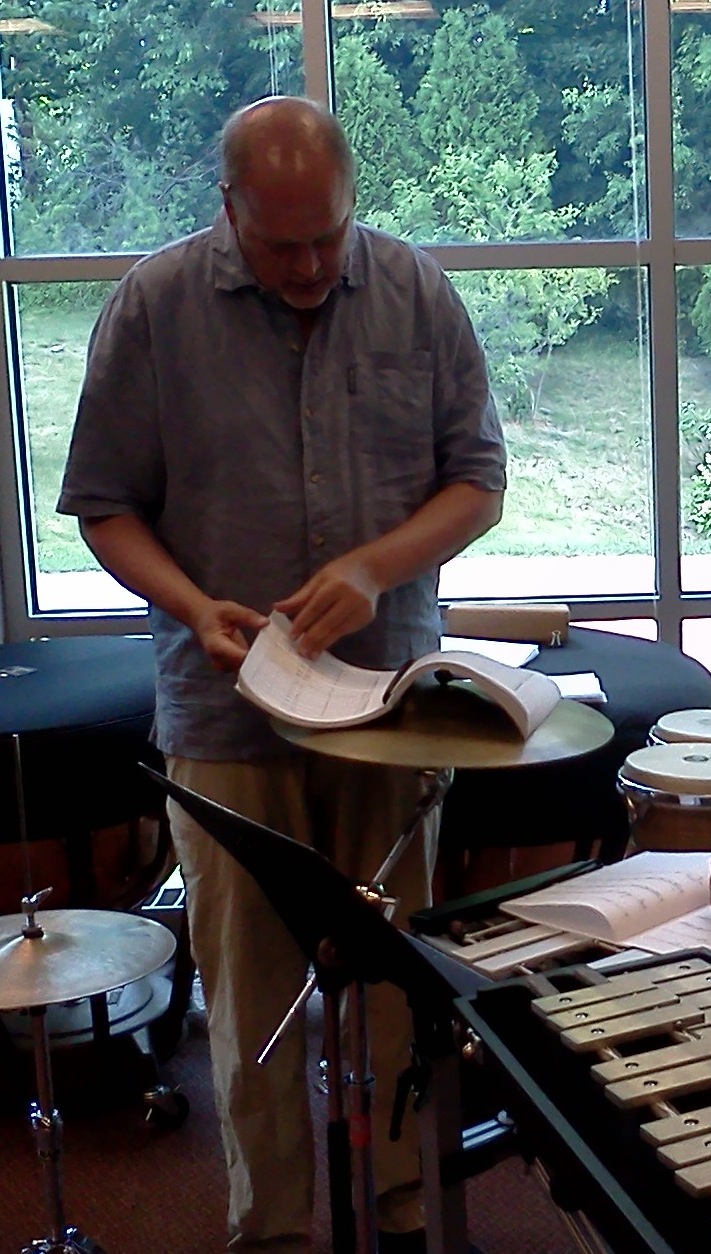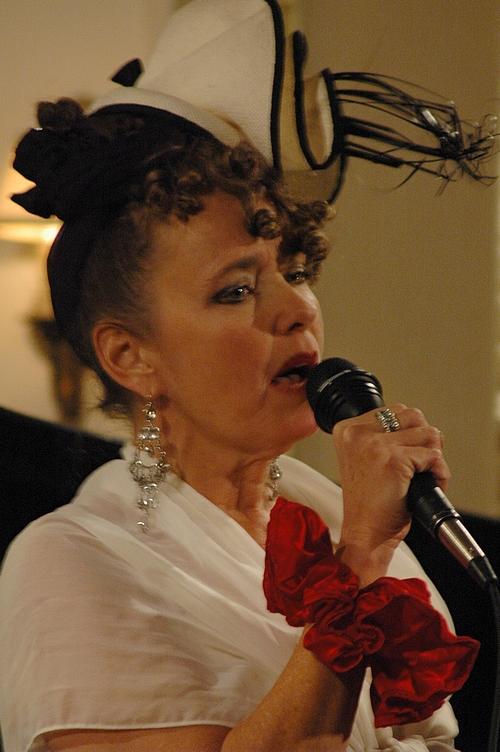Present Music’s big finish
Michael Daugherty's "Labyrinth of Love" is a big hit at its premiere, and Robin Pluer never sounded better.

Michael Daugherty, at a Present Music rehearsal Wednesday. TCD photo.
Rhythmic vitality, vivid color and striking gestures made Michael Daugherty‘s Labyrinth of Love a big hit Friday night, as Present Music and soprano Jennifer Goltz premiered the song cycle at Turner Hall.
Daugherty, an allusive composer, draws on various styles across the eight songs, but they have those three arresting qualities in common regardless of whether he’s riffing on blues, jazz, Baroque opera or Minimalism. Daugherty, a cheeky composer, has no qualms about setting Mary Shelley‘s (1797-1851) love poem — ‘Twas thus, as ancient fables tell/ Love visited a Grecian maid etc. — as a rock ‘n’ roll torch song. And he has the chops to make it a great rock song.
Daugherty made 14 pieces sound like a full orchestra behind Goltz’s big, gleaming voice. Goltz rendered the period ornaments stylishly in the faux-Baroque ode to Elizabeth Taylor and Richard Burton. She can also rock and tip-toe through minefields of tricky modernist rhythms. The PM players ate up Daugherty’s brilliant, idiomatic writing for their instruments. Trumpeter Don Sipe nailed a number of solos, notably three big fanfares that punctuate the elaborate vocal recitative setting of an Elizabeth Barrett Browning poem and a big bluesy blast in Liz’s (Taylor) Lament. Carl Storniolo had his Bolero moment in Sappho 47, for soprano and temple block only. That number and the finale, Anne Carson‘s Short Talk on the Sensation of Aeroplane Takeoff, percolate with high velocity and jumpy, bumpy rhythms that the ensemble, led by Kevin Stalheim, played with great panache.
The concert, the last of Present Music’s season, drew a big crowd to the Turner Hall ballroom. The venue has a bar, and the room is conducive to moving around and chatting. Still, Stalheim started with Bright Sheng‘s quiet, intimate Kazakhstan Love Song, with violinist Eric Segnitz and pianist Cory Smythe upstage behind the set-up for Labyrinth. The audience did its job and quieted down; it helped that Sheng starts with a booming, two-fisted piano cluster. Then a folkish song on the violin, then a string of lyrical elaborations on that tune. Segnitz read them as delicately poetic rather than Romantically ardent, and less was more.
Michael Gordon‘s acdc made no sense at all to me for about four minutes. But I just kept listening to Smythe, violinist Zhan Shu, cellist Adrien Zitoun, flutist Marie Sander and clarinetist Rane Moore chatter away. The scoring reminded me of one of those CNBC moments when all the business-expert talking heads all insist on talking at once. But I kept on listening, and in minute five I heard it through the general tumult: The parts interlock and mesh or clash in all sorts of intricate exchanges. The piece is both polymetric and polytonal, and the various voices align and realign in both domains on the fly. It’s ingenious and engaging music, if you’re persistent enough to figure it out.
If have heard Robin Pluer sing many times and have always loved her. But I have never heard her framed so perfectly or so imaginatively as she was Friday, thanks to Eric Segnitz’s exquisite arrangements. The sound tech, too, served her voice well, and the audience was quiet. She didn’t have to push to cut through a barroom crowd or the competing Bastille Days racket. She relaxed, and that made her voice lovelier than I’ve ever heard it and allowed her to bring the most subtle nuance to her singing. She specializes in French song. Friday, she sang the quintessential chanteuse number, La Vie en Rose, which such focus and aching intimacy that time stood still.
Keep Present Music’s 2o12-13 season and all of our arts groups’ seasons at your fingertips: Bookmark Matthew Reddin‘s comprehensive and still-growing guide to 2012-13. Sponsored by the Florentine Opera Company.






















